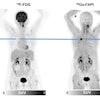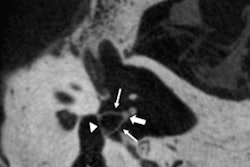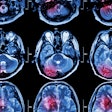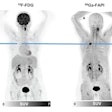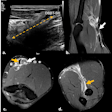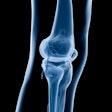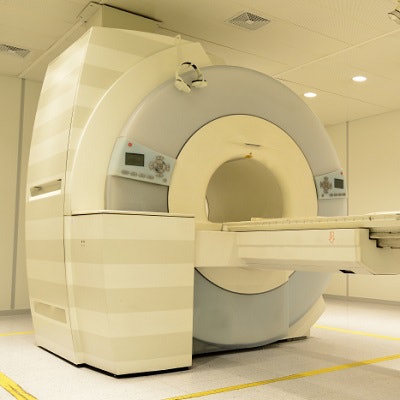
A study conducted by Irish and Saudi researchers into opinions and attitudes among MRI professionals has revealed that radiographers have a low participation rate in quality assurance (QA) testing and may rely too heavily on equipment vendors for ongoing scanner performance.
The group cited a number of reasons for this lack of radiographer involvement in QA testing and warned this sometimes led to suboptimal imaging and, in some cases, potentially needless engineer callouts to correct supposedly defective machines -- or even misdiagnoses.
 More training in MRI QA testing can boost efficiency, according to Walaa Alsharif, PhD.
More training in MRI QA testing can boost efficiency, according to Walaa Alsharif, PhD.But why do Saudi Arabian radiographers lag behind their European and U.S. counterparts in terms of QA testing and image quality recognition capacity? Could the lack of legal requirement to participate in testing be acting as a barrier to radiographers' professional advancement and ability to troubleshoot their own QA problems?
"There is a lot of QA effort in nuclear medicine and radiotherapy as these disciplines are considered risky, but there is a notable absence of radiographer involvement in MRI QA. I wanted to know why and whether there was a specific reason or a general lack of awareness," noted lead author Walaa Alsharif, PhD, a radiographer at the University College Dublin School of Medicine and Medical Science.
In the article published online by Radiography on 6 June, the team noted that while there are several guidelines from different organizations about MRI QA testing, how this guidance is implemented varies from hospital to hospital.
In the U.K. and the Republic of Ireland, regular MRI QA testing is performed by radiographers and physicists; however, this is not the case elsewhere. From her previous experience working as a radiographer in Saudi Arabia, when something goes wrong with the image quality or scanner performance, radiographers generally will call the engineers, according to Alsharif. But, if radiographers are involved in MRI QA testing, then they can address problems before suboptimal quality becomes clinically obvious.
Additionally, radiographers will be in a position to discuss problems with engineers and adjust scanning parameters appropriately, she noted.
Qualitative study
The authors undertook a qualitative study using individual semistructured interviews in which they explored the attitudes and perceptions of professionals with regard to QA testing in MRI across 19 hospitals in Saudi Arabia's three main geographical regions: Western, Central, and Eastern. The research group surveyed a total of 52 professionals (45 MR radiographers and seven medical physicists) from six out of 13 (46.2%) public hospitals, 10 out of 14 (71.4%) semipublic hospitals, and three out of 55 (5.5%) private hospitals. Interviews were conducted in English and were validated through a pilot study in one MRI department in a Saudi public hospital not included in the main study.
The key findings from the survey are listed below:
- 89.5% of MRI departments surveyed rely on vendor preventive maintenance.
- 93.3% of MR radiographers surveyed don't perform QA testing.
- Lack of legal requirement, professional organization, and knowledge considered principal factors limit radiographer involvement in MR QA testing.
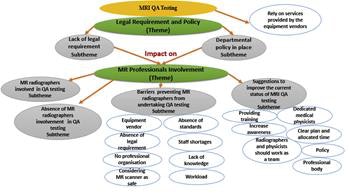
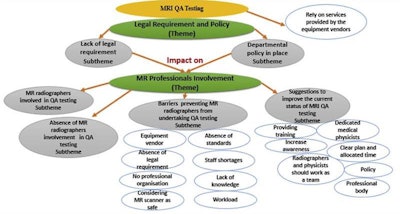
Conceptual map for MRI quality assurance testing and its themes and subthemes. Walaa Alsharif, PhD.
Low participation
While one limitation of the study was the low number of geographical regions represented, the researchers identified several themes and subthemes common to radiographer responses about QA testing. They found that MRI departments in Saudi Arabia rely on the preventive maintenance service, which is usually undertaken by the equipment vendor every three or six months, depending on the contract. Furthermore, a lack of a formal legal requirement and national or organizational policy seemed to affect QA testing in MR departments, which in turn affected the level of MR professionals' engagement in MRI QA testing within their departments.
Other factors such as lack of knowledge, staffing levels and expertise, and workload also played a role in the findings. There was no difference between MR radiographers and physicists' responses with regard to the status of routine MR scanner QA testing or the suggestions for improvement to the QA testing process proposed by both groups.
Specifically, all participants reported a lack of a legal requirement to carry out weekly MRI QA testing in their departments. However, 12 of 52 participants (23%) referred to the existence of an internal policy in their departments requiring the performance of routine MRI QA testing in addition to the preventive maintenance service. This practice was limited to only two of the 19 (11%) MRI departments surveyed.
The majority of departments (89.5%, n = 17 departments) surveyed in this study relied exclusively on the preventive maintenance service provided by the equipment vendor to monitor MR scanner performance, and the findings demonstrated that MR radiographers do not understand the difference between the aims of routine weekly QA testing and those of the preventive maintenance service.
A limited number of MR radiographers (6.7%, n = 3 of 45) were actively involved in MRI QA testing in their departments. However, the majority (93.3%, n = 42 of 45) of radiographer study participants did not perform QA testing.
Additionally, most of the MR radiographers reported a lack of knowledge regarding how to undertake weekly MRI QA testing, who should do it, which measurements should be taken, and how frequently each test should be performed.
Education and training
The authors noted some radiographers seemed to be interested in carrying out QA testing, once they were given the chance to be trained in the required methods. They further noted the lack of training seemed to reflect the lack of access to medical physicists within MRI departments across Saudi Arabia. Even in those departments with access to a medical physicist, the authors found MRI QA testing was not routinely undertaken due to prioritized QA testing of imaging equipment involving ionizing radiation, research, and/or administration.
To improve the current status of radiographer involvement in MRI QA testing in Saudi Arabia, research participants recommended the implementation of a national, legally binding policy by the professional body of MR radiographers. They also suggested the development of focused education and practical training for MR radiographers via in-house training in test processes by physicists or vendors, recruitment of dedicated medical physicists to MR departments to monitor test processes and results, and some kind of campaign to increase awareness of the importance of these tests.
They also wanted a clear plan that identified the tests to be undertaken, the methodology and frequency to be employed, and specification regarding who should undertake tests and monitor the results. The plan also needed to allocate time to do this within the work schedule.
"Radiographer job specifications in Saudi Arabia don't contain any obligations to take part in MRI QA testing, nor is there any official policy recommending such testing in departments," Alsharif noted. "For radiographers to fully embrace QA testing, there needs to be a top-down management change, whereby the Ministry of Health imposes a legal requirement and a national policy for QA testing, and the managers of each hospital department underline the requirement to department staff -- then radiographers will get on board."
For timely and effective change, radiographers also have to play their part, she continued.
"If radiographers consider QA a fundamental part of their job and transfer their results to management, management can use this data to influence policy and procedures," Alsharif said. "When I was a student, nobody told me about the need for QA testing, and as a lecturer in Saudi Arabia, later this year, this is the key message I plan to deliver to my students."
She believes such an official move toward QA testing will benefit patients and also advance radiography and radiographers' professional status. The creation of a single association of radiographers rather than the two societies currently in existence also would be beneficial, as it could more easily implement effective, coordinated, distance learning, and a hands-on training program, the lack of which is hampering progress at present, according to Alsharif.



